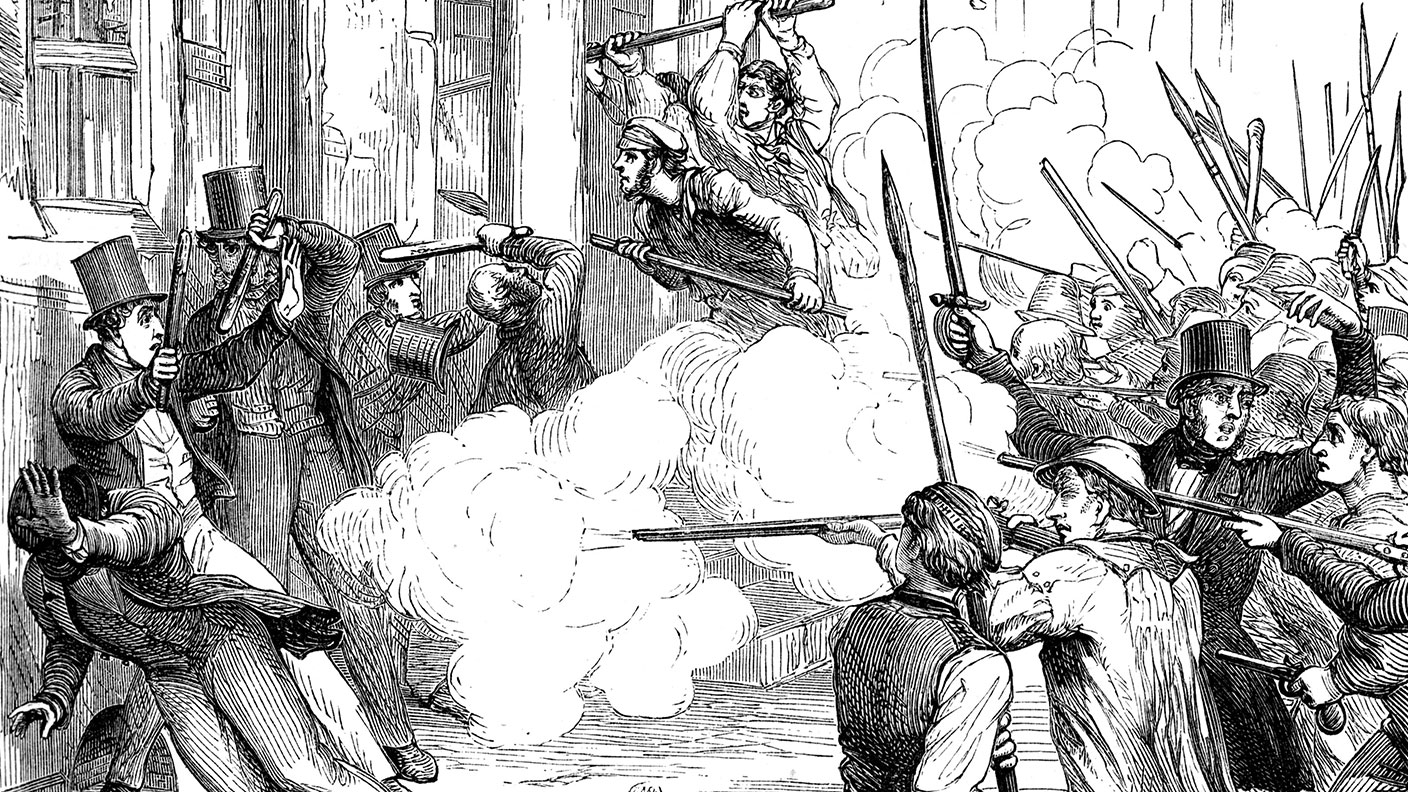
Get the latest financial news, insights and expert analysis from our award-winning MoneyWeek team, to help you understand what really matters when it comes to your finances.
You are now subscribed
Your newsletter sign-up was successful
Want to add more newsletters?

Twice daily
MoneyWeek
Get the latest financial news, insights and expert analysis from our award-winning MoneyWeek team, to help you understand what really matters when it comes to your finances.

Four times a week
Look After My Bills
Sign up to our free money-saving newsletter, filled with the latest news and expert advice to help you find the best tips and deals for managing your bills. Start saving today!
The mid-19th century was a time of great social change. It was also a time of huge inequality – only 18% of the adult male population could vote, for example and the propertied classes lorded it over the vast majority of the country's unwashed, underprivileged, and under-represented masses.
The Chartist movement aimed to end this injustice.
In 1838, a charter was drawn up with six demands: "universal" suffrage (well, almost – all men over the age of 21); no property qualification to vote; annual parliaments; equal representation (ie, constituencies with a broadly equal number of residents returning just one MP); salaried MPs; and voting by secret ballot rather than a show of hands.
MoneyWeek
Subscribe to MoneyWeek today and get your first six magazine issues absolutely FREE

Sign up to Money Morning
Don't miss the latest investment and personal finances news, market analysis, plus money-saving tips with our free twice-daily newsletter
Don't miss the latest investment and personal finances news, market analysis, plus money-saving tips with our free twice-daily newsletter
Despite being supported by a petition containing 1,290,958 signatures, Parliament refused to consider their – quite frankly, perfectly reasonable – demands. Chartism was seen as a dangerously seditious movement. Feelings were running high.
It was against this background that John Frost, a prominent Welsh Chartist, hoped to organise a march on Newport. Between 3,000 and 5,000 Chartists assembled outside the town, but were delayed by bad weather. When the authorities heard of the plan, they feared a riot, and arrested several Chartists, holding them in the town's Westgate Hotel.
The Chartists got wind of their comrades' arrest, and armed themselves, aiming to storm the hotel and free the prisoners. But when they arrived, they were greeted by 500 special constables and 50 armed troops – 22 protesters were killed when the troops opened fire.
At least 200 Chartists were arrested, and 21 were charged with high treason. John Frost, along with fellow organisers Zepheniah Williams and William Jones, was found guilty and sentenced to be hanged, drawn and quartered, a particularly barbaric and uncivilised punishment, even for the times.
There was uproar at the harshness of the sentences. It was discussed in the Cabinet and eventually Lord Melbourne, the prime minister, announced the sentences would be commuted to transportation instead.
Get the latest financial news, insights and expert analysis from our award-winning MoneyWeek team, to help you understand what really matters when it comes to your finances.

-
 Should you buy an active ETF?
Should you buy an active ETF?ETFs are often mischaracterised as passive products, but they can be a convenient way to add active management to your portfolio
-
 Power up your pension before 5 April – easy ways to save before the tax year end
Power up your pension before 5 April – easy ways to save before the tax year endWith the end of the tax year looming, pension savers currently have a window to review and maximise what’s going into their retirement funds – we look at how
-
 31 August 1957: the Federation of Malaya declares independence from the UK
31 August 1957: the Federation of Malaya declares independence from the UKFeatures On this day in 1957, after ten years of preparation, the Federation of Malaya became an independent nation.
-
 13 April 1960: the first satellite navigation system is launched
13 April 1960: the first satellite navigation system is launchedFeatures On this day in 1960, Nasa sent the Transit 1B satellite into orbit to provide positioning for the US Navy’s fleet of Polaris ballistic missile submarines.
-
 9 April 1838: National Gallery opens in Trafalgar Square
9 April 1838: National Gallery opens in Trafalgar SquareFeatures On this day in 1838, William Wilkins’ new National Gallery building in Trafalgar Square opened to the public.
-
3 March 1962: British Antarctic Territory is created
Features On this day in 1962, Britain formed the British Antarctic Territory administered from the Falkland Islands.
-
10 March 2000: the dotcom bubble peaks
Features Tech mania fanned by the dawning of the internet age inflated the dotcom bubble to maximum extent, on this day in 2000.
-
9 March 1776: Adam Smith publishes 'The Wealth of Nations'
Features On this day in 1776, Adam Smith, the “father of modern economics”, published his hugely influential book The Wealth of Nations.
-
 8 March 1817: the New York Stock Exchange is formed
8 March 1817: the New York Stock Exchange is formedFeatures On this day in 1817, a group of brokers moved out of a New York coffee house to form what would become the biggest stock exchange in the world.
-
7 March 1969: Queen Elizabeth II officially opens the Victoria Line
Features On this day in 1969, Queen Elizabeth II took only her second trip on the tube to officially open the underground’s newest line – the Victoria Line.
